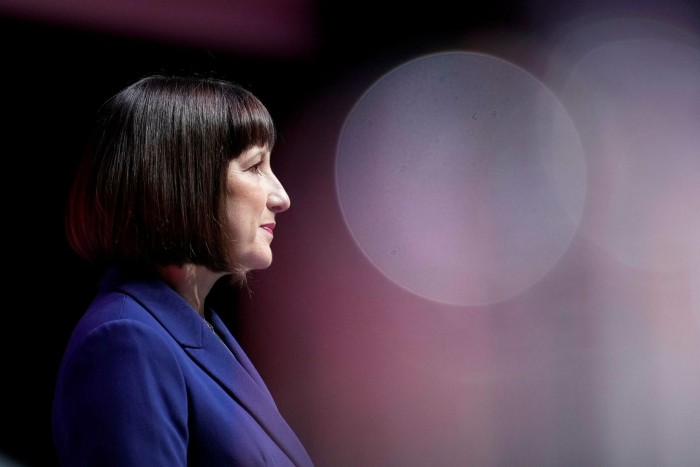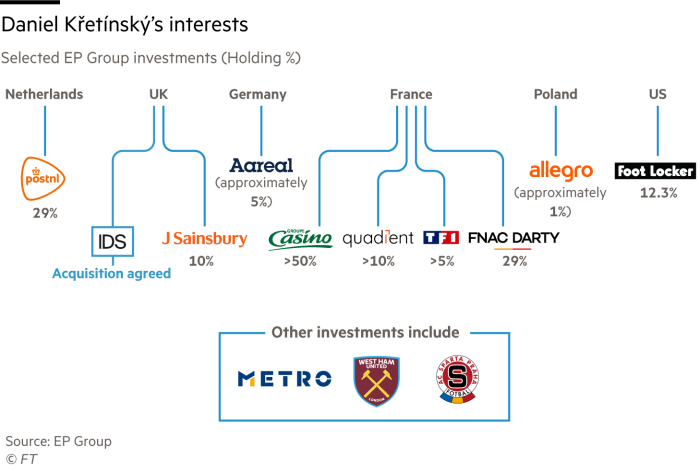
This article is an onsite version of our FirstFT newsletter. Subscribers can sign up to our Asia, Europe/Africa or Americas edition to get the newsletter delivered every weekday morning. Explore all of our newsletters here
Good morning. We start with Nato, which has calculated that Europe has only a fraction of the air defence capabilities needed to protect its eastern flank, laying bare the scale of the continent’s vulnerabilities.
Russia’s war against Ukraine has underscored the importance of air defence, as Kyiv begs the west for additional systems and rockets to protect its cities, troops and energy grid against daily bombing raids.
But according to people familiar with confidential defence plans drawn up last year, Nato states are able to provide less than 5 per cent of air defence capacities deemed necessary to protect its members in central and eastern Europe against a full-scale attack.
One senior Nato diplomat said the ability to defend against missiles and air strikes was “a major part of the plan to defend eastern Europe from invasion”, adding: “And right now, we don’t have that.”
Some European leaders and military officials have said that Russia could have the capability to attack a Nato member state by the end of the decade. Read the full report here.
More on European defence: Czechoslovak Group, the largest ammunition supplier in central Europe, warned that rising prices and poor quality meant that half the shells it had received could not be immediately sent to Ukraine.
Here’s what else I’m keeping tabs on today:
UK politics: Westminster parliament is dissolved ahead of the July 4 general election. Here are the four crucial battlegrounds where parties will vie for victory ahead of the vote.
Nato: Foreign ministers gather in Prague for a two-day informal meeting.
Economic data: EU releases April unemployment figures, while South Africa’s central bank makes an interest rate decision.
Earnings: Auto Trader, Dr Martens and Renewi publish full-year results, while quarterly results are expected from Best Buy, Birkenstock, Costco, Dollar General, Gap and Nordstrom.
Five more top stories
1. The next UK government must negotiate an improved trading relationship with the EU, warned one of the country’s biggest corporate lobby groups. The British Chambers of Commerce said tighter migration rules, rising Brexit-related costs and the increasing complexity of exports were throttling investment and growth at home, while new EU rules were making life harder for exporters and suppliers.
2. The United Arab Emirates has become an increasingly important source of foreign investment in Africa as China pares back loans in the region. The UAE pledged $97bn in new African investments — three times more than China — in 2022 and 2023, according to fDi Markets, an FT-owned company tracking cross-border greenfield projects, in a sign of how influential the UAE has become across the continent.
3. OpenAI is struggling to contain internal rows about its leadership and safety as the divisions that led to last year’s attempted coup against chief executive Sam Altman spill back into the public domain. A series of high-profile resignations point to continuing rifts inside OpenAI between those who want to develop AI rapidly and those who would prefer a more cautious approach.
4. Jurors weighing Donald Trump’s fate have asked to review trial testimony and be reminded of the judge’s instructions on the law. As their first day of deliberations in the former US president’s “hush money” case concluded without a verdict, the seven men and five women also asked to review evidence by tabloid publisher David Pecker and former Trump fixer Michael Cohen.
5. Israel expects to continue the war in Gaza until the end of the year to achieve its goal of “destroying” Hamas, said Tzachi Hanegbi. The country’s national security adviser and a confidant of Prime Minister Benjamin Netanyahu, said “we are expecting another seven months of fighting”, despite the country’s increasing international isolation and mounting pressure to end the war.
News in-depth

As millions of Britons were sent home from work to curb the spread of Covid-19 in March 2020, Rachel Reeves took to task the founder of pub chain Wetherspoons, one of dozens of business figures left sore by their dealings with the shadow chancellor. Reeves, who could be the UK’s first female chancellor, has been at the heart of Labour’s wooing of business ahead of the general election, but interviews and documents portray a politician determined to challenge the sharpest edge of business practices.
We’re also reading and listening to . . .
Shanghai’s lawyer exodus: More US law firms are closing their offices in Shanghai as a dearth of financial activity and depressed business sentiment force them to reassess their mainland China presence.
Marseille’s drug malaise: With a rise in drug-related homicides to an unprecedented 49 in 2023, Marseille has become a symbol of the challenges French law enforcement faces in combating narcotics traffickers.
Working It 🎧: Is “personality” a good enough reason to hire someone? In this episode, Isabel Berwick speaks to Bella Rose Mortel, a social media strategist who explains that charisma alone is no substitute for competence.
Chart of the day
Daniel Křetínský, the billionaire dubbed the “Czech sphinx”, confounded the UK market yesterday by clinching a £5.3bn deal to take over the London-listed owner of Royal Mail. The lawyer-turned-energy tycoon is one of Europe’s most prolific dealmakers and has already built up a stable of holdings in the UK and elsewhere.

Take a break from the news
A new documentary marking the 80th anniversary of the Normandy landings finds another way to lend immediacy to the testimonies of those no longer alive. D-Day: The Unheard Tapes is a three-part BBC series in which newly remastered audio recordings of postwar interviews with Allied and German soldiers are lip-synced by actors, cast and costumed to resemble the speakers. The result is uncanny.

Additional contributions from Benjamin Wilhelm
Recommended newsletters for you
One Must-Read — Remarkable journalism you won’t want to miss. Sign up here
Sort Your Financial Life Out — Learn how to make smarter money decisions and supercharge your personal finances with Claer Barrett. Sign up here

